Born to be killed: how Bastar's Gompad village turned into hell for its Adivasis

"Sau mein sattar aadmi filhal jab nashaad hain/dil par rakh kar hath kahiye desh kya azad hai (When 70 per cent people are oppressed/can you really say your country is free.)"
The state of affairs in Chhattisgarh's Gompad village brings this couplet by Adam Gondvi to mind. The state's tall claim of having taken governance to people's doors - the official slogan is "Aapki Sarkar Aapke Dwar" - falls flat when you see the hapless tribals surviving on rancid rice and pench-pasiya, a local drink.
Gompad isn't the only village in Chhattisgarh, or in India for that matter, that has not seen any development since Independence. There's no electricity, and when the night falls, the villagers don't dare light lanterns as it could attract unwanted attention from either the security forces or the Maoists.
Also Read: IG Kalluri's reign of terror: there's hardly a place left for truth in Bastar
In the memory of Gompad's tribals, countless harrowing tales of repression lie buried. Yet, they prefer to stay silent, mostly. It takes much persuasion to get them to talk and even then one hears only this refrain in the local Gondi dialect: "Mommani dol las puttom. Emey sarkar Auki, elokcchon Naxali." It translates to, "We are born to be killed, by the government or by the Naxals."Gompad, a non-descript village in Sukma district of Bastar has periodically hit the headlines, mostly for tragic reasons. The tribal activist and AAP leader Soni Sori hoisted the tricolour in this village on 15 August to mark the end of her 200-km foot march across the Naxal heartland. The village first came to national attention in 2009, when 16 tribals were gunned down, allegedly by the CRPF's Cobra Batallion, which had falsely dubbed them as Maoists.
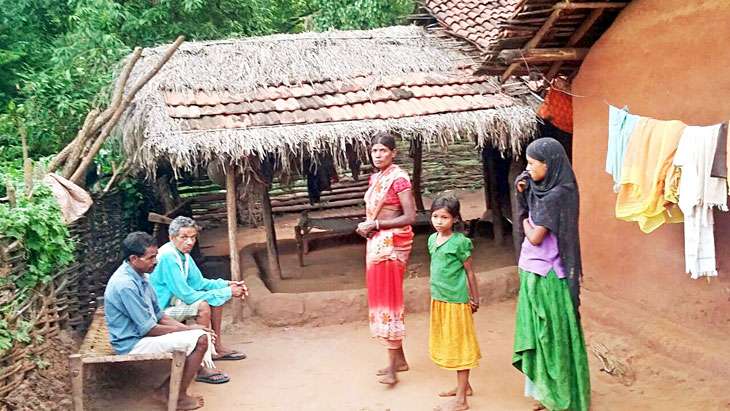
More recently, Madkam Hidme, a young woman from the village, was killed in an alleged fake encounter in June. While the police alleged that Madkam was a Naxal, her family and local activists insist she was an innocent villager who was raped and murdered in cold blood.
Caught in the crossfire
Taking stock of the ground situation in Gompad is no mean task. The villagers can communicate only in Gondi. And even if they understand questions put to them, the answers aren't forthcoming. For these Adivasis, every outsider is either an emissary of the security forces or of the insurgents.
The journey from Konta to Gompad can break one's spirit, and not merely because the road is decrepit. Passing through security checks in Konta and Murliguda is onerous task. The personnel manning the posts shout orders to raise hands from a distance while pointing their guns straight at your body. It isn't unusual for them to ask visitors to take off their clothes. Every outsider is photographed "for security reasons" and a barrage of questions follows the standard query about the purpose of travel to Gompad. The sheer humiliation of the exercise makes one wonder whether we are really living in a free country.
From Konta, Gompad is nearly 20 km away. But after only a few miles, the throat turns dry as the nauseating smell of gunpowder in the air overwhelms the senses. It's a constant reminder of the war that has ravaged this region. The villagers say bullets flying in the air is a near daily occurrence; often they catch the hapless villagers. This year alone, at least 11 villagers have reportedly fallen prey to the bullets of the security forces.
Nobody to catch the Maoists
Gompad is home to about 300 Adivasis. None of them has ever heard about elections or voting. They don't even know which party rules the state or who their chief minister is. To them, the outside world means only two kinds of people - Maoists or the security personnel.
Also Read: Cannon fodder: how police is using child spies against Naxals in Bastar
The villagers have never learned where the Naxals come from, but they have been forced to learn the rules of the game - that providing food and shelter to the insurgents is necessary to save their lives, that staying in the village when the marching steps of the security forces approach could spell trouble. Almost all men flee to the jungle whenever security forces enter their territory. But escaping the wrath of the security forces is not always possible. When they are caught, severe beatings and torture follow. The government forces accuse them of providing logistics to the Maoists. The villagers respond that nobody is around to catch the insurgents when they are in the village; the forces only turn up to show their bravado after the Maoists leave.
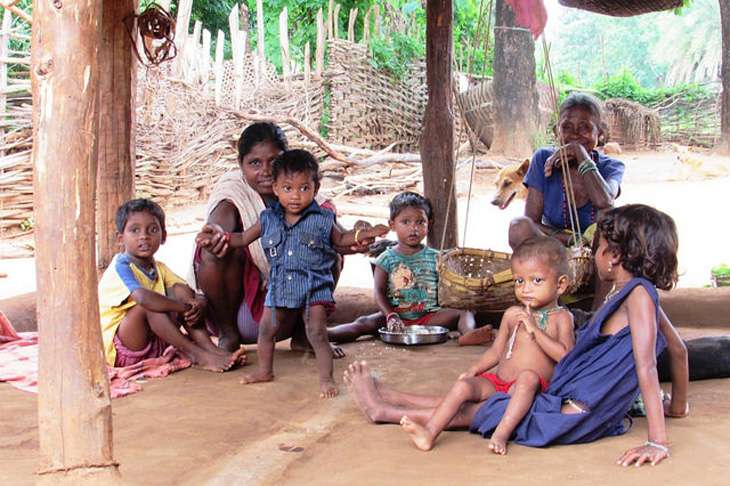
Ration cards and voter ID cards are unknown to these people. They have chosen one Chendranam as the village head. Chendranam says the village had a sarpanch but he fled to Konta after the 2009 massacre. He allegedly works as a police informant now.
Nobody in Gompad has ever been to school. The villagers draw blank faces when asked, "Masterji kahan hain (Where is the teacher)?"
"The greatest calamity falls upon us when somebody in the village falls sick. We have to carry the ill person to Konta on a bedstead. The patient often dies on the way," says Poyam, a villager.
Hidma, a village elder, adds, "We had a road here in the 80s. Commuting was easy; even big vehicles used to come here. But the road was destroyed after the war began. All that is left of it are patches of muddy trails."
Do they want the road rebuilt? Hidma replies, "Who will use the road, only the police. They will only dishonour our daughters and kill us. No, we don't want any road."
Symbol of injustice
The Bastar police has claimed that Madkam Hidme was killed in a "genuine encounter". However, Hidme's mother Lakshmi and other villagers narrate a different story.
Also Read:AGNI Vs PANI in Maoist-affected Bastar: has Salwa Judum returned?
Three villagers - Mudaraj, Santosh and Jugdevi - used to work for the Maoists until recently. They were recruiting at least one person from each village, and in Gompad they had set their eyes on Madkam. But Madkam, her mother said, had nothing to do with the insurgents. Only, on a few occasions, she had prepared food for them out of fear just like many other villagers."Mudaraj, Santosh and Jugdevi switched sides and one day came here with the soldiers. Madkam was sleeping in her house at the time of the raid. She was dragged out and taken to the jungle, where she was raped and killed," alleges Lakshmi.
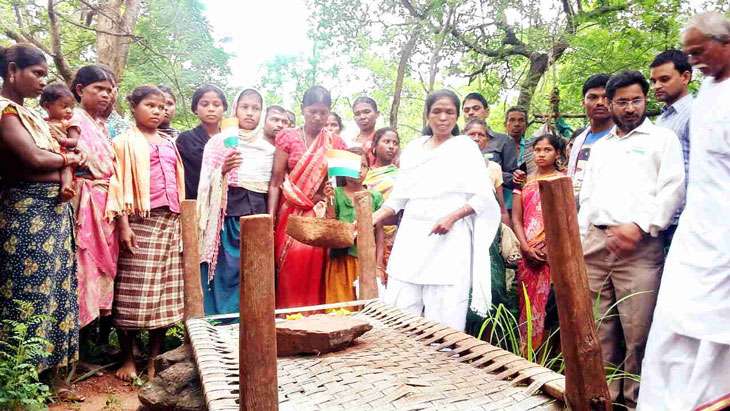
Madkam was buried outside the village, her charpoy placed on her grave in accordance with the local tradition. Her saree and bangles hang on a nearby tree.
Madkam had sowed maize before her death. And since tribal tradition gives equal share of the property to the daughter, a portion of the crop was used to feed sparrows near the grave.
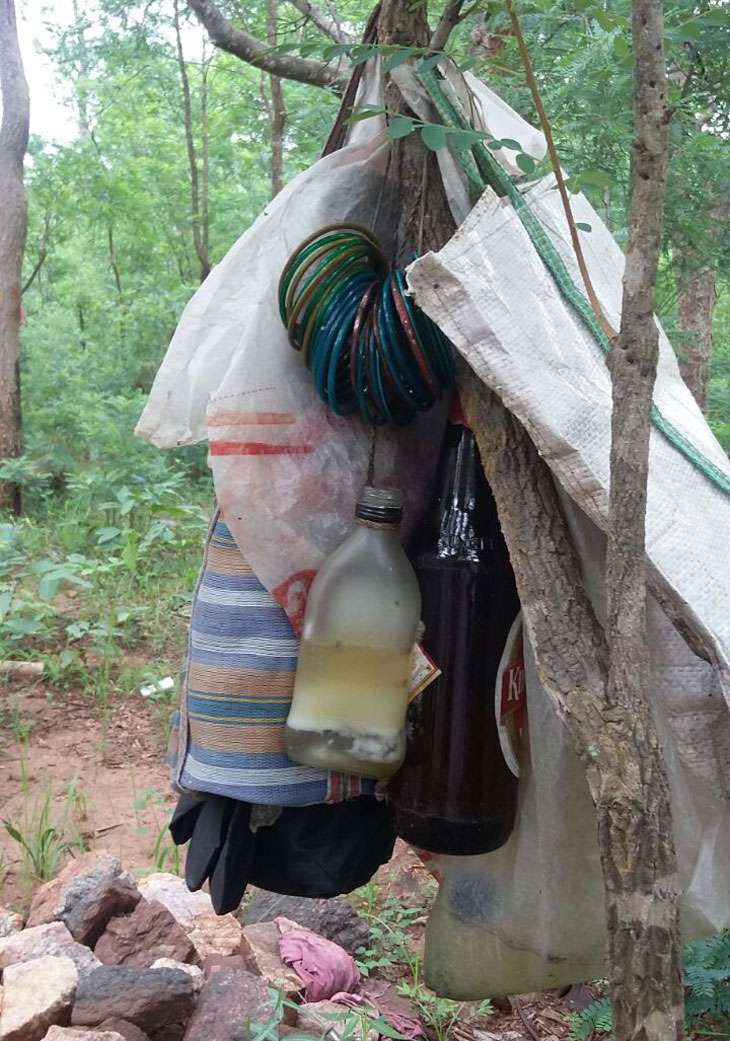
Madkam's body was buried twice. First, the Konta police buried the body after wrapping it in polythene. It was, however, exhumed for an autopsy on the orders of the Chhattisgarh High Court.
Madkam was a gifted singer and she regaled the villagers with Gondi folk songs while playing bells tied to a wooden stick. "When Madkam was taken to the jungle, the stick with the bells was in her hands. We found every other belonging but not her musical instrument," says Lakshmi. It was seized by the police as evidence that Madkam used to sing for the Maoists.
"We don't kill even a mad dog in the village without holding a meeting. But the Adivasis of Bastar are being killed with impunity. I fail to understand why every Adivasi is treated as a Naxal," asks Lakshmi.
Apathetic state
The state apparatus appears least bothered to reach out to these people, only ever offering regurgitated platitudes about development and security. Sample the following remarks:
Neeraj Bansod, Collector of Sukma: "Many villages are lagging behind in development because of Maoism. Gompad is one such village. Working in Maoist-affected areas is never easy. Maoists can't tolerate development as it erodes their authority. The light of development will usher when Maoists are wiped out."
DM Awasthi, DG, Maoist Operations: "The Maoist movement is restricted to backward villages. The government is making every effort to provide every facility to the villagers in these areas. Everybody needs roads, water and electricity. The tribals also favour a better living standard. We are trying our best to uproot Maoists from their lives. We have been successful to a large extent. The day is not far when Gompad would be free of this menace."
Also Read: Endless cycle in Bastar: of 'fake' encounters and alleged rap





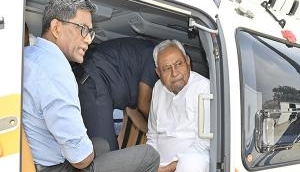
![BJP's Kapil Mishra recreates Shankar Mahadevan’s ‘Breathless’ song to highlight Delhi pollution [WATCH] BJP's Kapil Mishra recreates Shankar Mahadevan’s ‘Breathless’ song to highlight Delhi pollution [WATCH]](https://images.catchnews.com/upload/2022/11/03/kapil-mishra_240884_300x172.png)

![Anupam Kher shares pictures of his toned body on 67th birthday [MUST SEE] Anupam Kher shares pictures of his toned body on 67th birthday [MUST SEE]](https://images.catchnews.com/upload/2022/03/07/Anupam_kher_231145_300x172.jpg)






